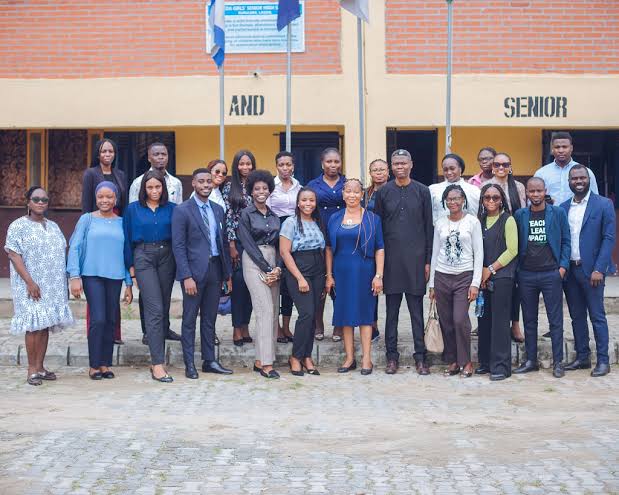Education is cornerstone of societal development. In Nigeria community engagement has emerged as vital factor in supporting and enhancing educational outcomes. With a diverse population and varying regional challenges. The involvement of local communities plays crucial role in addressing educational disparities. It fosters supportive learning environment. This extensive exploration examines the significance of community engagement in Nigerian education. It discusses the various forms it takes, its impact on schools and students and strategies for strengthening these efforts.
Community engagement in education refers to active participation of local individuals groups and organizations in supporting and improving educational initiatives. This involvement can range from volunteering and mentoring to providing financial support and advocating for educational policies. In Nigeria, where educational challenges include insufficient infrastructure inadequate resources and varying levels of access. Community engagement helps bridge gaps. This creates a more inclusive educational system.
Community engagement in Nigerian education manifests in several forms. One significant form is volunteering where community members contribute time and skills to support schools. Volunteers might assist in classrooms They may also organize extracurricular activities. Additionally, they participate in school management committees. This hands-on involvement helps address shortage of qualified teachers and provides additional support for students.
Another form is financial support, where individuals and businesses contribute funds to schools for infrastructure development, purchasing educational materials, or supporting special programs. In many cases, local businesses and philanthropists play a crucial role in providing resources that are otherwise lacking in public schools.
Parent and Guardian Involvement
Parent and guardian involvement is a critical aspect of community engagement. Active participation from parents can lead to better academic performance and improved school attendance. In Nigeria, parents who engage in their children’s education often contribute to creating a positive learning environment. This involvement includes attending parent-teacher meetings, supporting homework and study routines, and collaborating with teachers to address educational challenges.
Parent-Teacher Associations (PTAs) are common in Nigerian schools and serve as a platform for parents to engage with educators and contribute to school governance. PTAs often organize fundraising events, manage school facilities, and advocate for the needs of students, thereby fostering a stronger connection between the community and educational institutions.
Local Organizations and NGOs
Local organizations and non-governmental organizations (NGOs) also play a significant role in supporting education through community engagement. Many NGOs focus on addressing specific educational needs, such as promoting literacy, improving girls' education, or providing vocational training. These organizations often work directly with schools and communities to implement programs that enhance educational opportunities and outcomes.
NGOs such as the Nigerian Educational Research and Development Council (NERDC) and the International Youth Foundation (IYF) collaborate with communities to develop and implement educational initiatives. Their work includes training teachers, developing curricula, and providing resources to schools in underserved areas.
Impact on Schools and Students
Community engagement has a profound impact on schools and students in Nigeria. When communities actively support schools, there is often a noticeable improvement in educational outcomes. For instance, schools with strong community ties may experience increased student enrollment, higher attendance rates, and better academic performance. Community involvement also fosters a sense of ownership and pride in local schools, which can lead to more sustained support and involvement.
Moreover, community engagement helps address some of the systemic challenges faced by Nigerian schools. By providing additional resources and support, communities can help mitigate issues such as overcrowded classrooms, lack of teaching materials, and inadequate facilities. This collaborative approach not only improves the learning environment but also contributes to the overall quality of education.
Challenges and Barriers
Despite the positive impact of community engagement, several challenges and barriers can hinder its effectiveness. One major challenge is the lack of resources and funding. Many communities struggle with financial constraints, making it difficult to support schools adequately. Additionally, the lack of coordination between various community stakeholders can lead to fragmented efforts and reduced impact.
Another barrier is the varying levels of community involvement. In some regions, there may be limited awareness or interest in educational issues, which can result in lower levels of engagement. Cultural and socio-economic factors also play a role, as certain communities may face challenges related to poverty, access to education, or traditional beliefs that affect their involvement in educational activities.
Strategies for Enhancing Community Engagement
To overcome these challenges and enhance community engagement in Nigerian education, several strategies can be employed. Firstly, increasing awareness about the importance of education and community involvement is crucial. Public campaigns, workshops, and community meetings can help educate individuals about the benefits of active participation and the positive impact it can have on educational outcomes.
Building strong partnerships between schools, local organizations, and businesses is also essential. Collaborative efforts can lead to more effective and sustainable support for schools. For example, businesses can partner with schools to provide internships, training programs, and resources, while local organizations can offer volunteer opportunities and support for educational initiatives.
Additionally, creating platforms for open communication and feedback between schools and communities can foster better relationships and cooperation. Regular meetings, surveys, and feedback mechanisms allow community members to voice their concerns and contribute ideas for improving educational support.
Encouraging parental involvement through workshops and support programs can also enhance engagement. Providing parents with resources and training to better support their children’s education can lead to increased participation and involvement in school activities.
Conclusion
Community engagement plays a vital role in supporting education in Nigeria. Through various forms of involvement, including volunteering, financial support, and active participation from parents and local organizations, communities contribute significantly to enhancing educational outcomes and addressing systemic challenges. Despite facing obstacles such as limited resources and varying levels of involvement, effective strategies can be employed to strengthen community engagement and create a more inclusive and supportive educational environment. By fostering a collaborative approach, Nigeria can work towards achieving its educational goals and ensuring that all students have access to quality education.
